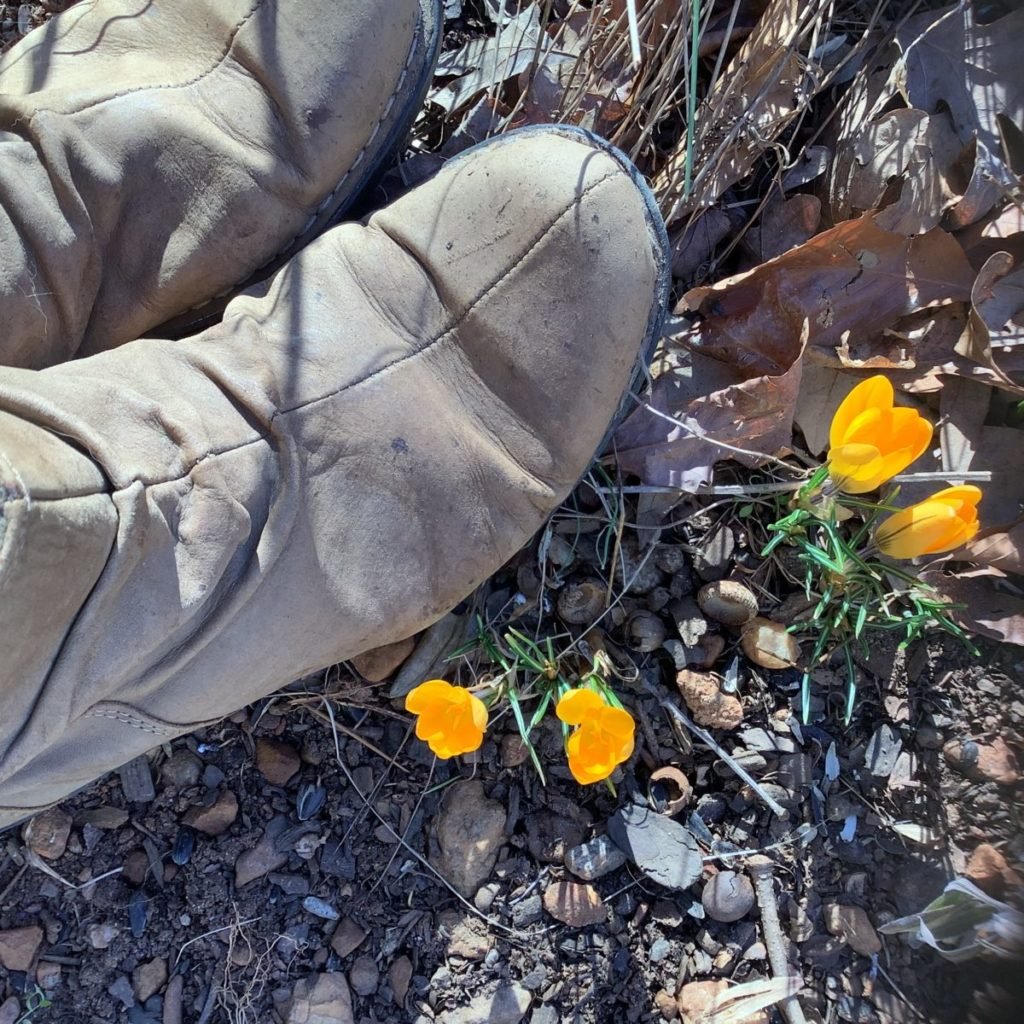
Moreover, you must walk like a camel, which is said to be the only beast which ruminates when walking.–Henry David Thoreau, “Walking,” 1861
Solvitur Ambulando. Since Wordsworth logged his 175,000 miles in the Lake District of England, much has been suggested about the relationship between poets and walking. I am a compulsive walker and I cannot imagine writing poetry without first walking the poem, letting it spin into a kind of worthiness on wooded footpaths and open meadows. This is a modern luxury, however. Virginia Woolf aside, walking poems have generally been the province of men as women were not allowed to move about so freely.
Interestingly, poetry in its oldest form is walking poetry. Oral poems were quite literally walked from one community to another, in preservation of genealogy, history, or law but also to impart prayers and life lessons. Music and chants, which included meter and rhyme, developed early on to enhance memory of the walking poem. The earliest evidence of rhyme is ascribed to China’s Book of Songs, compiled around 600 BC. Other ancient works such as the Vedas ( 1500-1000BC) and the Odyssey (800-675 BC) were composed in poetic form to enhance oral transmission. Most of us, however, will be more familiar with the 14th century “Rime Royal” used in Chaucer’s English verse and a favorite form for long, narrative poems.
More fun than this dry history, however, is to read the breadth of what poets have written about walking. Robert Frost’s “Acquainted with the Night” describes walking in an urban landscape while Thomas Hardy’s “The Walk” encompasses a kind of mourning. There is even a Gothic sonnet by Charlotte Smith that surely has the longest title ever: “Sonnet: On Being Cautioned Against Walking on an Headland Overlooking the Sea, Because It Was Frequented by a Lunatic.” And then there is A. E. Housman’s plaintive nocturne “White in the Moon” where he wanders a moonlit road in hopes it will lead back to his love: The world is round so traveller’s tell . . .
I think it is Rilke, however, who speaks closest to what most of us poets experience as we enter the deep-rooted mystery between walking and writing—
A Walk
by Rainer Maria Rilke
…………………………………..English version by Robert Bly. Original Language German
My eyes already touch the sunny hill,
going far ahead of the road I have begun.
So we are grasped by what we cannot grasp;
it has its inner light, even from a distance—
and changes us, even if we do not reach it
into something else, which, hardly sensing it,
we already are; a gesture waves us on,
answering our own wave..
but what we feel is the wind in our faces.

Share this post with your friends.

